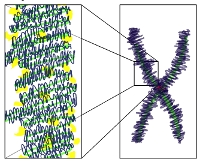 |
**__Related stories:__***linkurl:Epigenetic suicide note;http://www.the-scientist.com/article/display/55843/
[August 2009]*linkurl:Burning chromatin at both ends;http://www.the-scientist.com/article/display/55468/
[March 2009]*linkurl:An epigenetic inheritance;http://www.the-scientist.com/blog/display/55342/
[January 19th 2009]




















